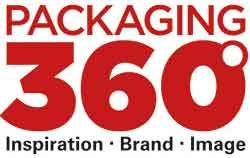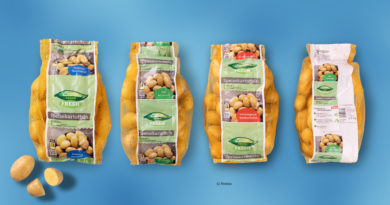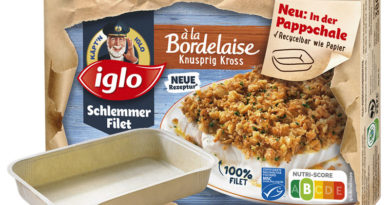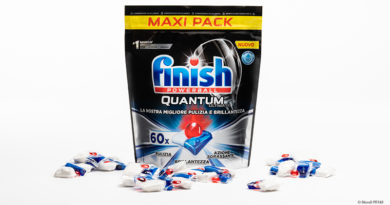Ammerländer with sustainable cardboard packaging
The Ammerland Dairy in Wiefelstede-Dringenburg gives top priority to species-appropriate cow husbandry and sustainable packaging.
The Pure-Pak® Sense board with Natural Brown Board is completely based on renewable raw materials, because the polyethylene in the closure and board is also wood-based; coming from Nordic forests, it is made from tall oil, a residue from pulp and paper production. This beverage carton is thus the most sustainable packaging of the Elopak Group, which is known on the market as a system supplier for carton packaging. Compared to conventional milk cartons, the CO2 footprint of the new packaging has been reduced by around 38 percent, according to the dairy.
ADVERTISEMENT
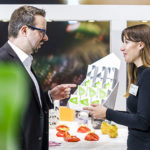 At FachPack you will find exhibitors with the right innovations from the packaging process chain. Meet these companies with innovations on the subject of sustainable packaging. More information can be found here.
At FachPack you will find exhibitors with the right innovations from the packaging process chain. Meet these companies with innovations on the subject of sustainable packaging. More information can be found here.The countries of Ammerland rely on certified sustainability for their packaging: the ISCC-certified use of wood-based plastic material contributes to the protection of natural resources. And the cardboard material comes from responsibly managed forests in accordance with FSC standards. „Thus, not only does the organic milk come from sustainable dairy farming, but it is also filled into the most sustainable milk packaging to date in the fresh segment,“ says Dr. Lars Schildwach, Managing Director Sales/Marketing at Molkerei Ammerland. „This is our most sustainable product, for which we have even adapted our brand image – the logo adorns a naturally green banderole, which will also be used for other organic products,“ he emphasises.
Ammerländer organic milk was introduced in October 2018. In July 2018, Ammerland carried out a consumer test to evaluate various packaging designs, in which the perception and acceptance of the Natural Brown Board in comparison to the white Duplex Board was also tested. The results showed a clear consumer preference for the Natural Board, as it communicates sustainability and naturalness and at the same time strengthens the credibility of the organic milk concept.
Consumers also said that natural brown packaging is much easier to identify than environmentally friendly. „We are aware of the waste problem caused by plastics, especially in the oceans, through numerous media reports and social feeds. On the one hand, plastic bags and straws are being abolished, but on the other hand there is a trend towards PET bottles in the milk segment,“ says Swantje Harms, Brand Manager at Ammerland Dairy. „Here we want to take a step forward and sensitise consumers to more environmentally friendly packaging. Although it is a long way, it is all the more important to show that there are alternatives and make a start.“
